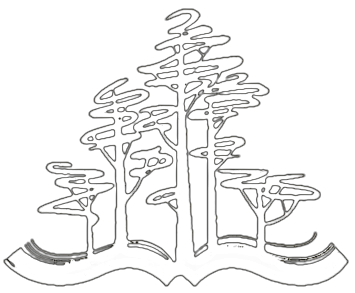Summer School on the Russian Literature. 2017.
Vol. 13. № 2
This article uncovers and analyzes an uncommon translation of Count Dmitry Khvostov’s anti-Napoleonic ode by the Sardinian diplomat and ideologue of conservatism, Count Joseph de Maistre. Maistre’s literary experiment is considered as declaration of his theological utopia centered on the contemporary political history of Europe and providential mission of four „sister languages“ — French, Russian, Latin, and Sanscrit.
Keywords: Count Dmitry Khvostov, Count Joseph de Maistre, Napoleonic wars, translation and diplomacy, debates concerning language, linguistic utopias.
Keywords: Count Dmitry Khvostov, Count Joseph de Maistre, Napoleonic wars, translation and diplomacy, debates concerning language, linguistic utopias.
Ilya Vinitsky
Count Khvostov and Count de Maistre
Geo-philological fantasies in the era of the Napoleonic Wars
Geo-philological fantasies in the era of the Napoleonic Wars
The article is dedicated to the history and the analysis of visual versions and textual transformations of Sergei Mikhalkov’s poem „Vysokie zvezdy nad nami goryat...“ in 1937–1940. The study of this issue reveals the mechanism of formation of Stalin’s image as „the father of nations“.
Keywords: S. V. Mikhalkov, V. I. Govorkov, Stalin, the Thaw, poster, source, point of view.
Keywords: S. V. Mikhalkov, V. I. Govorkov, Stalin, the Thaw, poster, source, point of view.
Alexander Grishin
„Stalin takes care of each of us in the Kremlin“:
from Mikhalkov's poem to Govorkov's poster
from Mikhalkov's poem to Govorkov's poster
The article substantiates that the novella „The Deception“ by Iurii Fel’zen was polemically oriented on the novel „Mary“ by Vladimir Nabokov-Sirin and revealed a typological affinity with the novel „An Evening with Claire“ by Gaito Gazdanov. The nature of the influence on the Fel’zen’s poetics by the artistic technique of Marcel Proust is specified. The function of creative memory is analyzed.
Keywords: Iurii Fel’zen (N. B. Freidenshtein), G. Gazdanov, V. Nabokov-Sirin, M. Proust, literary context, memory.
Keywords: Iurii Fel’zen (N. B. Freidenshtein), G. Gazdanov, V. Nabokov-Sirin, M. Proust, literary context, memory.
Victor Dimitriev
The literary context of Iurii Fel'zen’s novel „The Deception“
Anton Chekhov’s „Dreary Story“ is overviewed in this article in comparison with „Le Crime de Sylvestre Bonnard“ by Anatole France. Formal, character and episodic similarities between two pieces are analyzed. Chekhov’s short story is placed in the context of French literature of XIX century, which allows to discover its typical connection with France’s novel.
Keywords: French literature of XIX century, „deheroization“, A. France, „Dreary Story“ by Anton Chekhov.
Keywords: French literature of XIX century, „deheroization“, A. France, „Dreary Story“ by Anton Chekhov.
Arina Kosareva
About a French source of A.P. Chekhov’s „Dreary Story"
The article deals with the analysis of the most important phonetic, stylistic and compositional features of the poem „The Raven“ in translations by G. V. Golohvastov.
Keywords: poem, verse, strophe, rhyme, rhythm, composition, image, translation, refrain.
Keywords: poem, verse, strophe, rhyme, rhythm, composition, image, translation, refrain.
Inna Noskova
On the versification identity of E. A. Poe's poem „The Raven“ translated by G. V. Golokhvastov
The article analyzes strategies of representation by literary community of emotionalists designed to make it a full participant of literary field. Special attention will be payed to internal contradicitions of accepted strategies that did not let the emotionalists turn into a notable literary phenomenon.
Keywords: M. A. Kuzmin, the Emotionalists, literary unions, sociology of literature, the literary field.
Keywords: M. A. Kuzmin, the Emotionalists, literary unions, sociology of literature, the literary field.
Alexandra Pakhomova
Strategies for the representation of a literary group
(using the example of the association of emotionalists)
(using the example of the association of emotionalists)
Contacts
summerschool@list.ru
В оформлении сайта использованы материалы Freepik.


